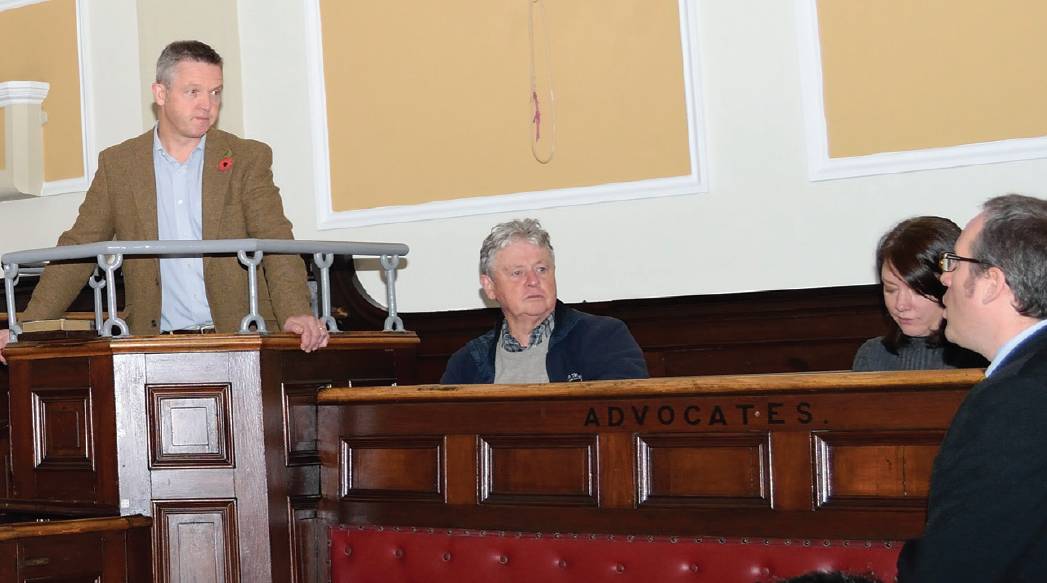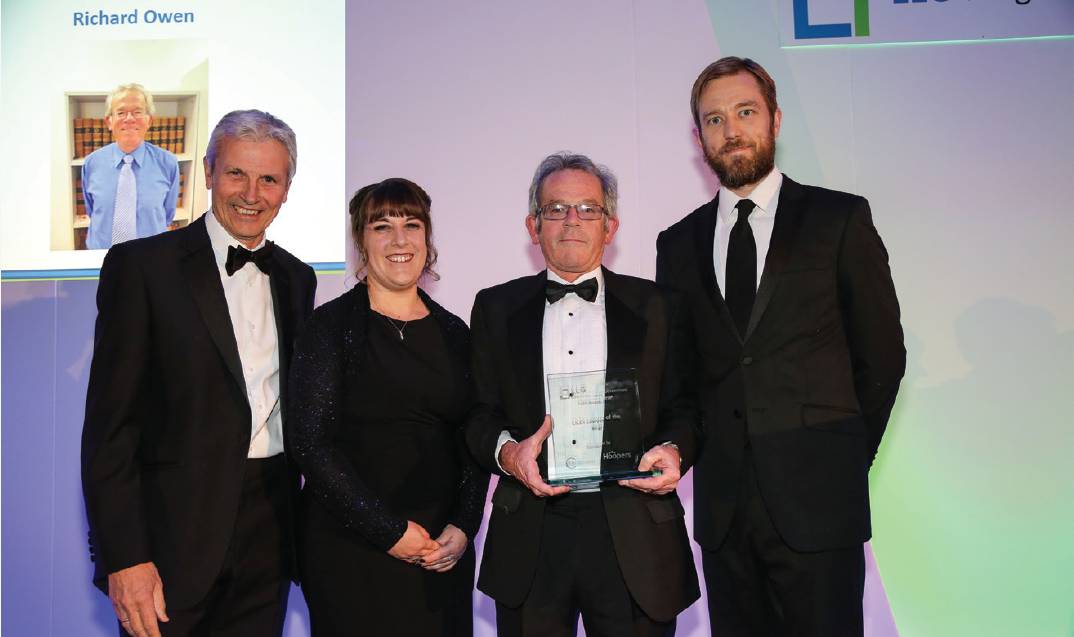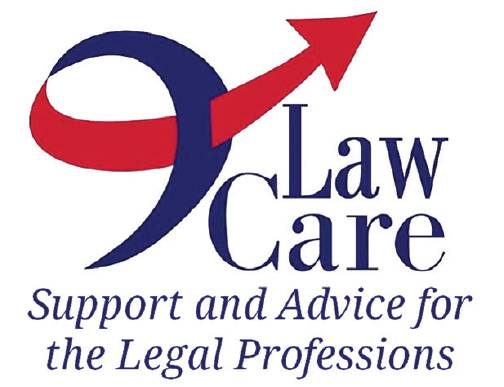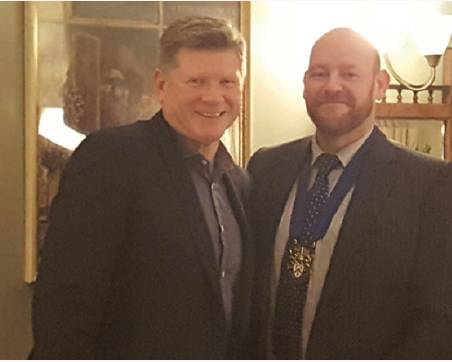myCILEx
Welcome to myCILEx
CILEx’s exclusive members area
myCILEx provides you with information on the work CILEx is doing on behalf of its members.
For the latest branch events in your area, visit: www.cilexbranches.org.uk
President’s review
Martin Callan, CILEx President, looks towards to the New Year:
As I approach the halfway point in my presidency, I wanted to give all our members an update. Over the past few months, I have - along with my fellow office holders and Council members - attended as many branches as possible. It is striking to me how many dedicated volunteers we have on branch committees, helping to deliver a CILEx presence, support to members and relationships with centres, employers and recruiters. We have an amazing pool of talent among our members, and I will continue to press for more recognition of these contributions.
The New Year brings a range of threats and opportunities to CILEx members. Changes affecting conveyancers, litigators and family, crime and personal injury lawyers mean that we need to work together to respond to consultations and help shape the future of legal services. Our colleagues in Wales also face an emerging, distinct jurisdiction of Welsh law. Changes to regulation are also underway. Working closely with our independent regulator, we are hoping to reduce both the cost and burden of regulation to enable more of our members to access the practice rights and entity opportunities we fought hard to secure over the past 10 years (see pages 30–31 of this issue).
There are challenges and threats, yes, but also opportunities from which we can all benefit if we work together. I see our future - as Chartered Legal Executives - as being positive and successful, and would invite all members of all grades and all branches to seize the future! We can succeed and - if we work together - we will.
New SDLT guidance issued
CILEx has met with the Treasury to express its views on stamp duty land tax. A new guidance note was issued in November 2016.
- Stamp duty land tax: higher rates for purchases of additional residential properties, available at: http://tinyurl.com/hzc8z3h
Policy round-up : Our latest projects and initiatives
Simon Garrod, CILEx director of policy and governance, writes about the latest policy projects and initiatives.
As mentioned in ‘Policy round-up, ’(2016) December CILExJ pp40–41, diversity is likely to continue rightly to feature as a high-pro file issue in 2017. This is even more the case since Elizabeth Truss, the Secretary of State for Justice, in her autumn party conference speech, placed significant emphasis on improving the diversity and social mobility of the legal profession. CILEx is committed to ensure relevant regard is given to equality and human rights, to the need to ensure justice is accessible for those who seek it and to the promotion of diversity.
Diversity and Community Relations Judges (DCRJs) invited CILEx to their annual training event earlier in the year. They wish to collaborate with CILEx to encourage Fellows to consider a career in the judiciary. In relation to this and other issues, CILEx has been an active member of and has contributed to the Judicial Diversity Forum and its various working groups. This has involved raising awareness to representatives of the Ministry of Justice, Judicial Office (JO) and Judicial Appointments Commission (JAC) of the barriers that CILEx members face in the application process.
In particular, CILEx has requested that judicial diversity is required in the higher courts. This can only be achieved if suitably qualified Fellows are allowed to sit in these courts. A pre-application programme is being devised with CILEx support to encourage applications from underrepresented groups. These groups include women, black, asian, and minority ethnic (BAME) practitioners and those who attended state schools. Pre-application training will complement the current judicial appointment initiatives, which include a judicial mentoring scheme, work shadowing and outreach events.
CILEx staff have also attended a judge shadowing event, facilitated by His Honour Judge Mark Horton (see pages 16–17 of this issue). In 2017, CILEx branches will be hosting DCRJs so members gain confidence in applying for judicial roles. CILEx is publishing all judicial exercises for which Fellows are eligible to apply, and will continue to develop relationships with the JAC and the JO to ensure that our members are included in the diversity on the bench.
CILEx is a founder member of the Legal Professions Mental Health and Wellbeing Taskforce (see (2016) June CILExJ p42). The group brings together representatives from legal membership, regulatory and educational organisations and those with expertise and knowledge of the field. The primary focus of the taskforce is to promote the mental health and wellbeing of the legal community positively and agree recommendations and actions which set out how the legal community can best work together. The key roles of the taskforce are as follows:
- To bring representatives of the legal professional, regulatory and educational organisations together to identify mechanisms for establishing and sharing best practice.
- To identify issues and concerns which are common across the legal community and where collaboration will be beneficial.
- To identify how to raise awareness of the importance of mental health and wellbeing, and tackle any stigma as a barrier to accessing support.
The group identifies and shares information about appropriate sources of support for individuals who need it. CILEx has promoted Mental Health Awareness Week, and collaborates with LawCare to raise awareness of remedies to stress and bullying in the workplace. CILEx collaborates to ensure that individual members, and their employers, work together to raise awareness of the assistance available to support them at home as well as at work. CILEx members benefit from access to LawCare, which supports and promotes good mental health and wellbeing in the legal community.
LawCare has recently launched a brand-new, contemporary, exciting website. The site has new case studies, blogs, a news and media section, as well as new resources and an events timetable. We encourage our members to take advantage of the wealth of information and advice available to them on this site. You can view it at: www.lawcare.org.uk. Look out for more information on wellbeing initiatives during 2017.
Since ‘Policy round-up’, (2016) December CILExJ appeared, CILEx has launched a further Specialist Reference Group, this time covering civil litigation. Further groups are planned covering other practice areas, including crime and family, as well as other membership groups, such as BAME and lesbian, gay, bisexual, and transgender practitioners. Look out for information on their phased introduction in future editions.
We would like to thank members of the Court Users, Personal Injury, Regulatory Affairs and Conveyancing Groups who, over the past month, have provided some valuable views and insights that have assisted in CILEx’s responses to external consultations and the development of policy.
The Contingent Legal Aid Fund (CLAF) Joint Working Group (of which CILEx is a member with the Law Society and the Bar Council) has created a questionnaire seeking views on the viability of a possible CLAF, as a means of providing a viable and worthwhile option to complement existing forms of litigation funding. The questionnaire, which must be completed by 12 pm on 9 January 2017, is available at: http://tinyurl.com/jyf2dun. We would like to hear from you, so please take a look if you have not yet had the chance to complete it.
Do you know of a Chartered Legal Executive Lawyer who has been recognised for their achievements and service in the 2017 New Year Honours List? If so, please get in touch with their contact details.
- E-mail : media@cilex.org.uk And remember: If ever you or someone you know is shortlisted for a professional award, we would love to hear from you!
Family Law Awards name CLE of the Year

Pam Sanghera of The Family Firm won the Chartered Legal Executive of the Year award at the sixth annual Family Law Awards, which were held in November in London.
Pam specialises in international child abduction, wardship and inherent jurisdiction matters. She works closely with charities that support parents separated from their children as a result of their removal from the country. She is a listed lawyer for Reunite International, and many of her cases involve her working closely with the International Child Abduction and Contact Unit in the office of the Official Solicitor and Public Trustee.
Pam said: ‘I am delighted to have won this award. The prestigious Family Law Awards are the epitome for recognising dedication within this area of law.
I am honoured to have received this recognition, which could not have been achieved without great team work and support.’
Sitting in judgment
Michael Jones, a consultant licensing lawyer and retired Chartered Legal Executive Advocate, writes:
I read with much interest Craig Tickner’s recent article ‘Walking in the shoes of a judge – Part 1‘, (2016) November CILExJ pp40–41. It has prompted me to share a judicial experience I enjoyed in November 2016. I hope it will encourage others to push their skills as far as they can: the results can be surprising!
I qualified as a then Legal Executive Advocate in 2002: very much in the early days. I practised as a principal lawyer and senior litigator with Herefordshire Council until we parted company amicably last summer. I have now returned to private practice as a consultant on a part-time basis. I have always enjoyed teaching and mentoring others in various disciplines, as I hope the following will show.
Working well together (WWT) is an organisation funded primarily by the Health and Safety Executive (HSE). It is made up of 14 or so groups of construction industry businesses that put on regular health and safety seminars throughout the country for small to medium-size companies. The seminars address current HSE national campaign issues, such as falls from height and vehicle movements on construction sites. The Hereford and Worcester Group Committee, with HSE representatives, have over recent years put on ‘mock trials’ to teach members of the industry how to conduct themselves in court, the relevance of primary and secondary legislation in the field and – essentially – to learn that one’s work practices on a building site can have a crucial and, sometimes, painful effect in court at a later date.

For some years, WWT has organised an annual mock trial not only as a teaching tool but also as a source of debate. The past two years have seen me as the prosecutor. This year, I was promoted to the role of district judge in a trial under the Health and Safety at Work etc Act (H&SWA) 1974. Over 50 people attended the proceedings, which were conducted in the splendid old courtroom in Kidderminster Town Hall. The attendees formed the jury to decide on the guilt or innocence of a dumper–truck driver who, through the alleged recklessness of his actions, squashed a surveyor within an inch of his life. (It would be worth checking out H&SWA ss7 and 33 (about the general duties of employees at work and offences respectively) some time!).
I explained to all attendees how the trial would work and how we would massage court procedure into a hybrid of Crown Court and magistrates’ court proceedings to allow everyone to take part. I explained that I intended to ‘stop the clock’ as and when important legal and practical points emerged. I also allowed myself a judicial summing up before my sizeable jury before they were asked to give a majority verdict. (It is a special moment when you hear the usher say: ‘court rise’ before you walk in!)
In a morning of close-fought court drama, four prosecution witnesses and the defendant were taken through their evidence by Ed Fryer, an officer of the HSE and Vic Younis, an advocate with Painters solicitors in Kidderminster. The excellence of the scenario was shown by the closeness of the verdict: 28–23 in favour of conviction! It then fell to me to explain the sentencing guidelines and other issues before handing down a sentence which – I hope – will stand up to appeal!
I was delighted to receive supportive comments and positive feedback over lunch afterwards. I really felt that my jury would go away feeling that they had learnt something of value. The experience also left me with the realisation that my life as an advocate in various courts for nearly 40 years has taught me important lessons, which I can share with others. I do hope that the scenario described above helps colleagues who practise regularly in court to believe that there is no reason why they should not seek judicial office : be it in the courts or in tribunals. We have acquired the skills, over time, to do this. Just add self-belief together with, dare I say, a measure of humility.
I do wish Craig Tickner well should he gain judicial office in due course, and hope that this article prompts others to try to do so. Lastly, I must add that when I attempted this route myself a few years ago, senior officers in CILEx could not have been more helpful and encouraging. I do thank them.
- See also Louise Turner, ‘Walking in the shoes of a judge – Part 2’, (2016) December CILExJ 44–45 and pages 16 and 17 of this issue.
CLE lawyer wins local government award

Richard Owen FCILEx, from Conwy County Borough Council, was named CILEx Lawyer of the Year at the annual Lawyers in Local Government awards in November in Leeds.
CILEx, with Hoopers International Probate Genealogists, co-sponsored the dedicated award, which recognises outstanding achievement by a local authority CILEx accredited lawyer in any field of law. The runner up in this category was Ruth Griffiths from Peterborough City Council.
On winning the award, Richard said: ‘I was really proud to receive the CILEx Lawyer of the Year Award. It was an honour to be nominated by my employer, Conwy County Borough Council, and I would like to therefore thank them and my colleagues for their support.’
Richard is an ambassador for Chartered Legal Executives, raising the profile of CILEx lawyers within the local authority and encouraging other staff to follow the CILEx qualification route.
Resilience
Elizabeth Rimmer, LawCare’s director, writes:

Resilience is the ability to adapt and bounce back when things do not go as planned. Resilient people do not let failure bring them down: when things go wrong, they forge ahead anyway.
In any workplace, there will be people who thrive on challenges and difficulties, while others panic and withdraw at the first hint of trouble. If you are in the first group, your work resilience is high and you probably deal more effectively with the stresses of your job and cope well under pressure. If you are among those who have not been born with natural resilience, the good news is that anyone can learn how to develop resilience, and it is not as difficult as you might think.
In his best-selling book, The resiliency advantage: master change, thrive under pressure, and bounce back from setbacks, Al Siebert writes:
… highly resilient people are flexible, adapt to new circumstances quickly, and thrive in constant change. Most important, they expect to bounce back and feel conÿdent that they will.
This expectation is closely linked to a general sense of optimism – not a quality lawyers are trained to develop – but it is, nevertheless, possible to develop the right mental attitudes to cope, and even flourish, when the going gets tough at home or in the office.
- Learn to see challenges, mistakes and failures as valuable learning experiences.
- Give yourself a pat on the back when things go well. Be kind to yourself, and forgive yourself when things go wrong. Treat yourself occasionally.
- Do not give in to negative thoughts. Challenge them: ask whether these thoughts are true or realistic.
- Use humour to defuse and downplay difficulties. Laugh at yourself and situations. Al Siebert writes:
Playing with a situation makes a person more powerful than sheer determination. The person who toys with the situation creates an inner feeling of ‘this is my plaything; I am bigger than it … I won’t let it scare me.
- Be flexible. Recognise that nothing stays the same, especially in work environments.
- Take care of your physical and mental health. Get enough sleep, exercise and eat well. When your physical self is in good shape, you are less fragile.
- Recognise that a bad situation is probably temporary. If your boss does not like a piece of work you have done, it does not mean that s/he will never like any work you do.
- Build a support network. Make time for friends and family who encourage and strengthen you, and consult work colleagues you get on well with.
- Do not extrapolate one bad situation into another unrelated situation. If you are not good at a certain type of work, do not assume this means that you are not good at anything; you may excel in another area.
Although resilience may be a natural personality trait or a result of upbringing, this does not mean that it cannot be acquired or learned. In the stressful and ever-changing legal profession, it is an important skill to have.
- LawCare’s free and confidential helpline is available from Monday to Friday (9 am–7.30 pm) and at weekends and on bank holidays (10 am–4 pm). Telephone: 0800 279 6888 or visit: www.lawcare.org.uk
Letters to the editor
I am becoming increasingly frustrated at the continuing failure of organisations to acknowledge the status of Chartered Legal Executives.
I am a Chartered Legal Executive, specialising in all aspects of property work, having been admitted on 10 January 1992. I have over 40 years’ experience in the profession.
I act for a number of clients, who rely on private finance where the lenders are separately represented. The requirements of the lender are invariably that a solicitor must not only witness the execution of documents, but also provide client verification certificates. On each occasion, I ask if a Chartered Legal Executive can act in respect of these requirements and on each occasion I am told ‘no’.
It makes me wonder what the point of being a Chartered Legal Executive is. The Chartered Institute should be using every effort to educate these organisations, as well as their lawyers. What makes it even worse is that in a case I am currently dealing with, the lawyer at the lender’s solicitor is a trainee Legal Executive!! I can’t help wondering if that person must be thinking about the value of qualifying as a Chartered Legal Executive.
What can you suggest? What action will you be taking?
Andrew Lawrie
Louise Tyrrell, practice and membership support officer at CILEx, writes:
I am very sorry to read about your experiences, and can understand your frustration.
Generally, Fellows (as Commissioners for oaths) are able to undertake much of the same work as solicitors in relation to certifying copy documents and oaths etc. However, the person authorised to certify largely depends on the purpose of the document or the organisation seeking a certified copy. There is no statutory obligation on organisations to accept copies certified by a Fellow.
Members have contacted me previously with similar issues, and I have written to organisations in the past, pointing out the error of their ways. I tend to explain how Fellows reach qualification, explain that they are qualified lawyers, and the opportunities open to them (such as partnership and judicial appointments etc). I would usually ask an organisation to amend its policy to take into account Chartered Legal Executives. (This, of course, is all stuff that you and I know, but some people still do not understand). Whilst I can obviously not guarantee that an organisation will change its policy, I have had success in the past.
So, if you can provide me with the details of the lenders (including any points of contact, and addresses etc), I would be more than happy to write to them in such terms. Please also let me know whether you would be happy to be identified in the correspondence, or whether you would prefer me simply to say that I have been approached by a member. I can send you a copy of the letter, and then a response when one is received.
I read [Lauren Stacey’s letter] with interest [‘ A lawyer by any other name’, (2016) November CILExJ p43–44 ].
Yesterday I was contacted, by telephone, by a young lady from Aviva. She quoted my reference details. etc.
She asked if she could speak to the solicitor dealing with the probate case. I explained that I was a Chartered Legal Executive as well as an accredited full member of Solicitors for the Elderly and a full member of the [Society of Trust and Estate Practitioners]. She spoke to a colleague and said that she could only speak to a solicitor!
I know Aviva employ Chartered Legal Executives. Perhaps they should educate their staff.
Name withheld on request
With the recent high increases in court fees for claims over £10,000, I firmly believe that the time has come to encourage costs controlled arbitration along the lines of the schemes on offer from the Chartered Institute of Arbitrators (CIArb).
I am strongly in favour of this form of alternative dispute resolution (ADR) as opposed to mediation. Recent experience of mediation has convinced me that mediation has too many disadvantages and I wonder why this form of ADR is so favoured. Is it because the vested interest that is the mediation industry has strong lobbying powers?
If you are a business and are faced with the choice of how to resolve a dispute, for example of £50,000, by either spending £1,250 plus VAT for an arbitration or the same to a mediator, the answer seems quite simple in my view: arbitration every time! Surely spending a known sum of money to get a decision is favourable to spending money on the chance of getting a fudged compromise.
The Business Arbitration Scheme (BAS), which has been developed by CIArb, provides simple, cost-e ffective and timely resolution of disputes of low to medium monetary value (ie, £5,000– £100,000) by arbitration before a sole arbitrator. BAS is a fixed fee scheme, giving the parties certainty as to costs. A fixed fee of £1,250 + VAT is payable by each party, on commencement of the arbitration, to cover CIArb’s administrative costs and the arbitrator’s fees. BAS offers a final and legally binding award in less than 90 days from the appointment of the arbitrator.
I am nailing my support to the mast of arbitration, not because I have any connections to CIArb, but because it appears to be simple common sense. I know the obvious point is that both parties have to agree to arbitrate, but why not make cost-controlled arbitration compulsory for disputes of a certain monetary value. There has been a push to make mediation compulsory, but why not arbitration? The courts for lower-value cases would still, in my view, have a role in being the place to either enforce an award or to consider appeals on a point of law from an arbitration.
Anthony Reeves
Nick Hanning, in his article in the October Journal [( 2016) October CILExJ p46–47 ], observes that only 25% of CILEx members carry out legal pro bono work. I think his calculations are based upon an incorrect definition of pro bono work.
Legal pro bono work is surely anyone utilising their legal training, knowledge and skills to assist, without charge, any member of the general public. Therefore, anyone using those skills carrying out voluntary work is doing pro bono work.
In the last 35 years, I have sat and adjudicated on over 1,500 school admission appeals, covering all age groups and all categories of schools (hearing and questioning both parties and witnesses; reading and assessing reports (medical, educational and psychological etc), with each hearing lasting, on average, 30–40 mins.
In the same period, I have been a governor of numerous schools, including one in special measures, acting as finance, administration and compliance governor (I found David Pope’s article interesting [( 2016) October CILExJ p18]).
Today’s schools are autonomous, and to provide the best education for their students they have to be run as a commercial business.
I think that I have been doing pro bono work, don’t you?
P Machin FCILEx (retired)
Somerset Branch Xmas supper
Rachel Oaten, on behalf of Somerset Branch, writes:

Somerset Branch was very honoured to have CILEx President Martin Callan in attendance at its Annual Christmas Supper. Among the guests were CILEx past president David March (1992) and previous Somerset Branch chairs Nick Hansford and Peter Watkin.
This was a particularly enjoyable evening, and included a special retirement presentation to Nick who, on 27 January 2017, will retire from practice after 46 years. Nick was presented with a CILEx-engraved Cross pen and a bottle of champagne by Martin Callan. Nick joined the Somerset Branch, as a student member, in the summer of 1970, and was Somerset Branch chair from 1983–1985, and from 1993–1994.
Nick joined Porter Dodson Solicitors as a then trainee Legal Executive on 15 June 1970, with a starting salary of £5 per week. He enrolled for the Legal Executive course at the Taunton College, and completed all of his exams by the age of 21. In those days you could not qualify as a Fellow until you attained the age of 25, so Nick had a four-year wait. He became a Fellow in 1979. Nick's career has spanned 46 years in Porter Dodson’s private client department.
‘Inspirational Women in Law’ award to FCILEx
Gemma Pesce, a CILEx Fellow, was chosen as a finalist for the First 100 Years' Inspirational Women in Law Award and, as a result, will become an ambassador for the First 100 Years project. The award was ‘in search of the brightest stories from the next generation of lawyers’. Gemma and three other finalists were presented with a diploma by Elizabeth Truss, the Lord Chancellor and Secretary of State for Justice, at the Spark21 conference in London, in November 2016.
Retirement
Mr Henry Barrie Mason, a Fellow from Rayleigh, Essex, will retire on 29 December 2016 from Gepp & Sons of Chelmsford, Essex, where he has been a member of the family law department for 15 years. He was admitted as a Fellow on 11 October 1971.